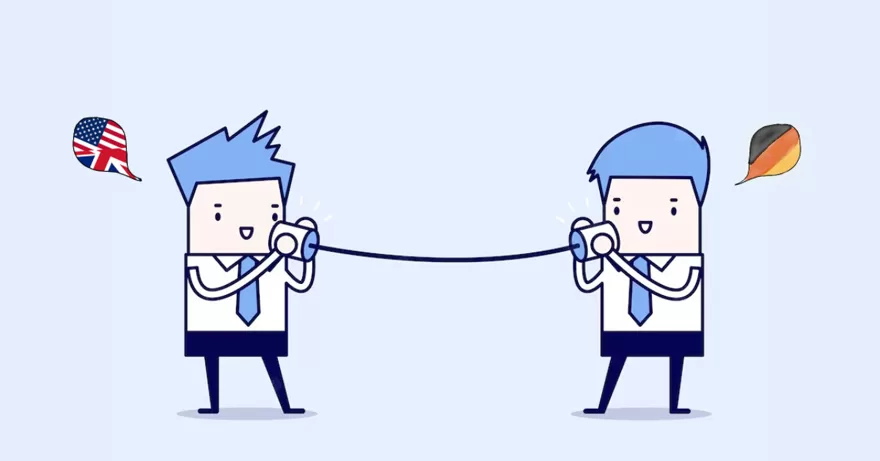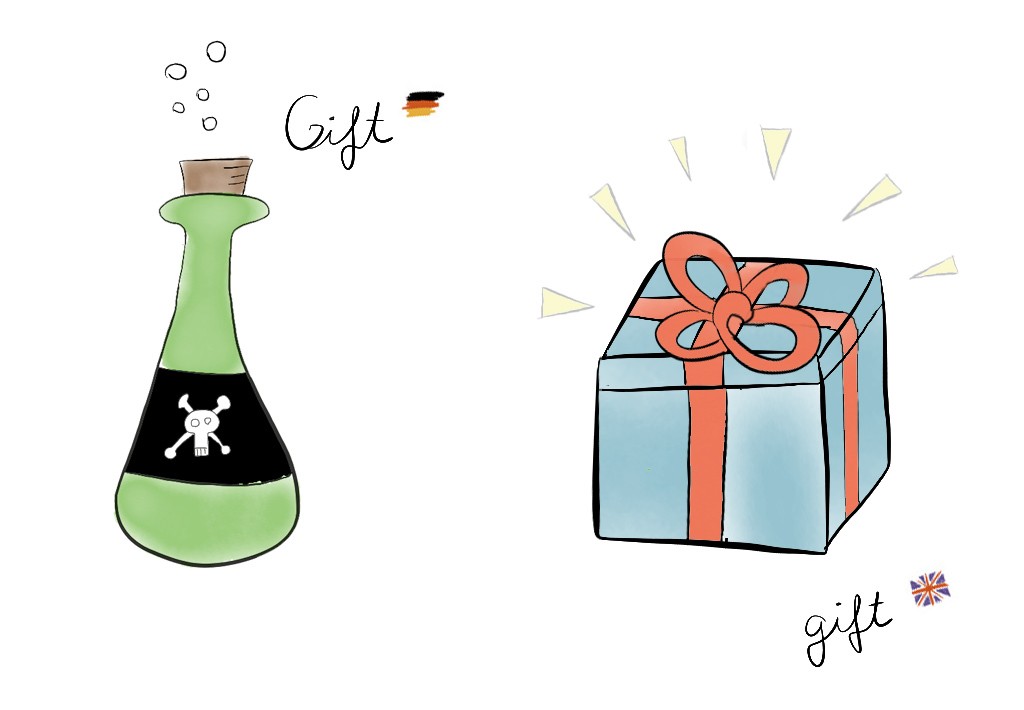
The German and English languages have a lot of similarities that might surprise many people. The two languages have a shared history and ancestry that dates back to the Germanic tribes that inhabited Northern Europe centuries ago.
The German and English languages are classified as West Germanic languages, which means they share a lot of similarities in syntax and vocabulary.
One of the most interesting aspects of this shared ancestry is the number of words that are the same in both languages.
In this article, we will explore some of the words that are the same in German and English, and look at the reasons why these similarities exist.
History and Background

diagram by Jaydenfromcanada
To understand why German and English share so many words, it’s important to look at the history of the two languages. The German language, like English, is a West Germanic language. The earliest form of German was spoken by the Germanic tribes that inhabited Central Europe during the Iron Age.
This language evolved over time and eventually became what is now known as Old High German. During the Middle Ages, German was the lingua franca of Central Europe, and it was widely spoken throughout the region.
English, on the other hand, is a descendant of the Old English language, which was spoken in England during the early Middle Ages. Old English was heavily influenced by the Germanic languages spoken by the Anglo-Saxon tribes that had migrated to England from Continental Europe.
Over time, Old English evolved into Middle English, which was heavily influenced by French, and eventually into Modern English, which is the language we speak today.
Cognates and False Friends
One of the reasons why German and English share so many words is because of cognates. Cognates are words in different languages that share the same origin and have similar meanings.
Many German and English words are cognates because they have a common ancestor in the Germanic language family.
For example, the English word “water” and the German word “Wasser” are cognates because they have a common ancestor in the Proto-Germanic language. Here are some more examples:
| German Word | English Meaning |
|---|---|
| das Blut | blood |
| blau | blue |
| das Brot | bread |
| der Bruder | brother |
| brennen | to burn |
| kalt | cold |
| der Traum | dream |
| die Erde | earth |
| fallen | to fall |
| der Vater | father |
| die Furcht | fear |
| der Finger | finger |
| das Feuer | fire |
| der Fisch | fish |
| frei | free |
| der Freund | friend |
| gut | good |
| das Haar | hair |
| die Hand | hand |
| das Herz | heart |
| das Haus | house |
| leicht | light |
There are thousands more of these. Sometimes spelling and meaning vary slightly, since both German and English evolved slightly differently, but it’s still often easy to spot the similarity.
One of the main difference between English and German is due to the so-called High German Consonantal Shift. This is going to get a bit nerdy, so please feel free to skip ahead.
High German Consonantal Shift
The High German Consonantal Shift, also known as the Second Sound Shift, refers to a series of sound changes that occurred in the history of the German language during the transition from Old High German to Middle High German, around the 6th to the 8th centuries AD.
The shift involved a change in the pronunciation of certain consonant sounds, which affected all Germanic languages to some extent, but was most significant in the High German dialects. This is why we see the change from English apple to German Apfel, ship -> Schiff, speak -> sprechen, church -> Kirche, etc.
These changes had a significant impact on the development of the German language and its modern pronunciation. They also distinguish High German from other Germanic languages, such as Low German and English, which did not undergo the same shifts. This also becomes apparent when comparing other Germanic languages such as Dutch and Norwegian with German.
Note that words originally came from Latin or Greek are almost always identical in German and English (and many other languages for that matter):
- die Information – information
- die Station – station
- die Konsequenz – consequence
- die Familie – family
- das Theater – theater
- die Galaxie – galaxy
- der Dinosaurier – dinosaur
False Friends
However, not all words that are similar in German and English are cognates. Some words are called false friends because they look or sound similar but have different meanings.
False friends can be confusing and lead to misunderstandings. For example, the English word “gift” means “present” or “something given”, but the German word “Gift” means “poison”. Similarly, the English word “bald” means “without hair”, but the German word “bald” means “soon”.

Same Words, Different Meanings
Another interesting aspect of the similarities between German and English is the number of words that are spelled the same but have different meanings in each language. These words are called homographs.
For example, the English word “fast” means “quick”, but the German word “fast” means “almost”. Another example is the word “arm”. In English, it means the part of the body from the shoulder to the hand, but in German, it means “poor” or “broke”.
These same words with different meanings can be confusing for language learners, but they are also an interesting example of how language evolves over time. Here are some more examples:
- die Bank: In German, Bank means “bench,” while in English, it means “financial institution.” (in German it can mean both)
- die Art: In German, Art means “kind” or “type,” while in English, it means “creative expression.”
- das Gift: In German, Gift means “poison,” while in English, it means “present” or “gift.”
- der Rat: In German, Rat means “advice,” while in English, it means “rodent.”
Common German-English Words
Despite the many false friends and homographs, there are still many words that are the same in German and English. Some of these words are so common that they are used in everyday conversation without the speaker even realizing they are using a German word. Here are a few examples:
| German Word | English Meaning |
|---|---|
| der Kindergarten | This word means “children’s garden” in German and refers to a preschool or daycare facility. In English, it has the same meaning. |
| die Angst | This word means “fear” or “anxiety” in both German and English. |
| die Autobahn | This word refers to the German highway system and is often used in English to refer to a German highway. |
| der Zeitgeist | This word refers to the spirit of the times or the cultural climate of a certain period. It is used in both German and English. |
| der Doppelgänger | This word refers to a double or look-alike of a person. It is used in both German and English. |
| der Rucksack | This word refers to a backpack in both German and English. |
| kaputt | This word means “broken” or “not working” in both German and English. (usually spelled “kaput” in English) |
| die Wanderlust | This word refers to a strong desire to travel and explore the world. It is used in both German and English. |
| die Schadenfreude | This word refers to the pleasure one feels at the misfortune of others. It is used in both German and English. |
These words are just a few examples of the many German words that have made their way into the English language. Many of these words have become so common in English that they are now considered English words as well. For even more similarities between English and German, both languages also share many Yiddish words that have their origins in Hebrew.
Conclusion
In conclusion, the similarities between German and English are fascinating and can be traced back to their shared history and ancestry. The two languages share many cognates, false friends, and homographs, which can be both confusing and interesting for language learners.
Despite these challenges, there are many words that are the same in both languages, and these words have become an important part of the English language. Understanding these shared words and their meanings can help us to better appreciate the similarities between the German and English languages and the cultures they represent.
–

